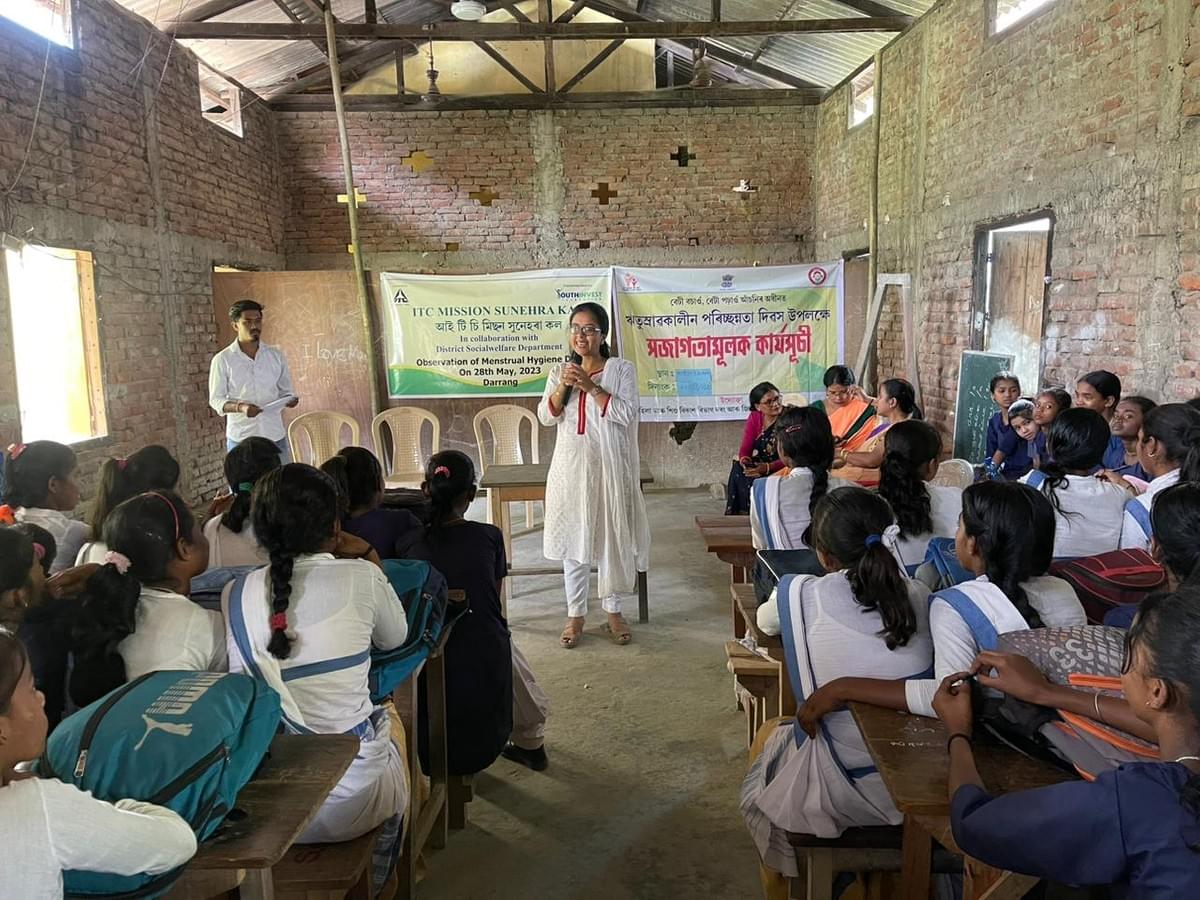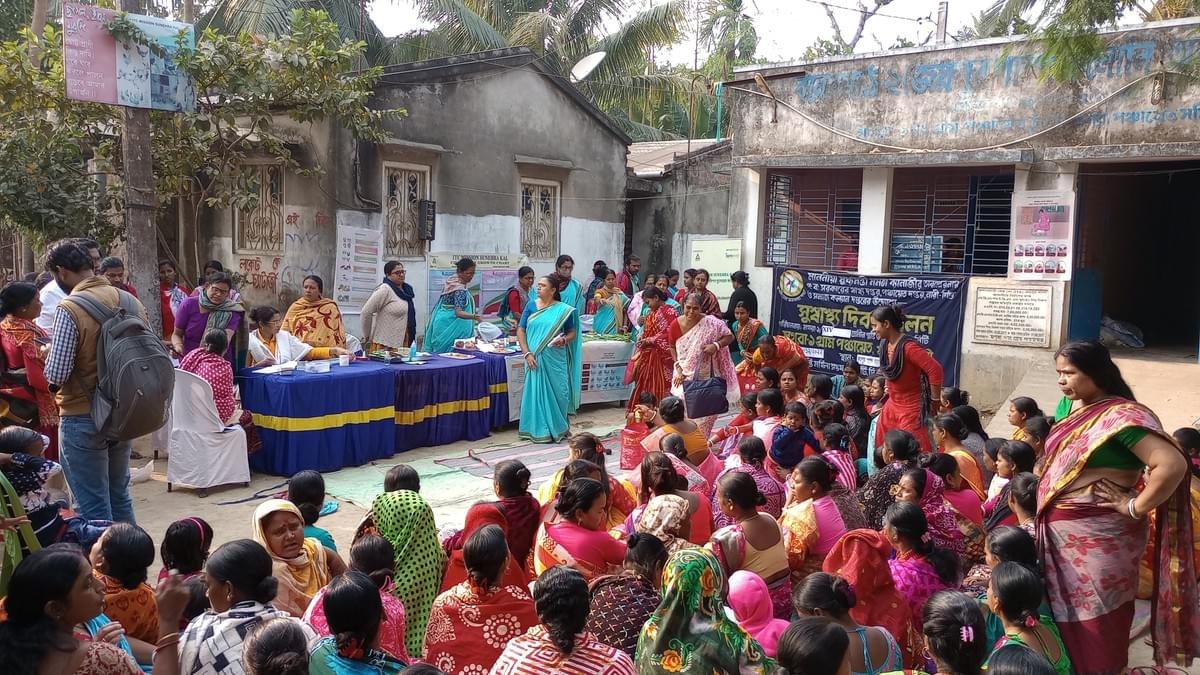


Unleashing the potential of youth for sustainable development
- Resources
- Get Involved
- Donate
- …
- Resources
- Get Involved
- Donate


Unleashing the potential of youth for sustainable development
- Resources
- Get Involved
- Donate
- …
- Resources
- Get Involved
- Donate

Health & Nutrition Programme
Enabling positive behaviour change related to maternal, child and adolescent health and nutrition
YouthInvest works to improve the Reproductive Maternal Newborn Child & Adolescent Health and nutrition (RMNCHN+A) status in West Bengal and Assam through system strengthening, community partnerships, behavioural change communications and convergence with the health, ICDS, education and PRI functionaries.
Prevention of child malnutrition in 8 districts of Assam
The project is covering 18,569 Anganwadi Workers and 649 ICDS Supervisors in Baksa, Barpeta, Darrang, Dhubri, Goalpara, Hailakandi, Udalguri and Kamrup districts of Assam, reaching more than 1 million mothers and children under 5 years.
Aim:
Prevention of child manutrition through changing feeding practice at home through cascading training of ICDS functionaries.
Strategies:
- Baseline and Training Need Assessment in eight districts of Assam.
- Training & capacity building of ICDS system functionaries from the district to the Anganwadi Centre level through cascade training of ICDS supervisors and block officials.
- Support ICDS supervisors of hotspot sectors with high malnutrition for effective monitoring and mentoring of AWWs.
Sector level with Anganwadi Workers ans Supervisor, Kamrup, Assam
Swasthya Poshan Alaap: mobile application on maternal, child, adolescent health & nutrition
On-the-go information with audio-video content for counselling and self-learning by frontline workers
- Includes key messages, myths & facts, videos, Q&A and quizzes.
- Pre-counselling checklist and counselling points for specific target groups.
- Works both online and offline mode.
- Available in English, Hindi, Bengali, Assamese (customisable in other other languages).
Prevention of child malnutrition and improving the maternal, child and adolescent health & nutrition
Intervention areas: Darrang and Kamrup districts of Assam and Kolkata, Howrah and Hooghly districts of West Bengal.

Key strategies:
1. Strengthening the capacity of frontline workers in collaboration with multiple government departments to complement services and avoid duplication of efforts at scale.
- Capacity strengthening of Anganwadi Workers (AWW) in home-based counselling on feeding practice during 1000 days.
- Orientation of Accredited Social Health Activists (ASHA) on the importance of couple counselling and use of family planning methods.
- Work in collaboration with frontline workers to improve community awareness events at Anganwadis and communities.
Anganwadi Worker counselling mother and mother-in-law using Swasthya Poshan Alaap, a mobile application at home, West Bengal

2. Creating awareness, building leadership and advocacy skills among adolescents in collaboration with the eDepartment of Educationand Rashtriya Bal Swasthya Karyakram (RBSK) to prevent early marriage and mestrual hygiene management.
- Orientation and handholding support of Kanyashree Club (in West Bengal) and student groups (in convergence with RBSK) at school
- School-level and community-level awareness events, such as Menstrual Hygiene Day, Youth Day and National Anaemia Day
Awareness programme in school on Menstrual Hygiene Day, Darrang district, Assam

3. Strengtheing community groups in urban slums on RMNCH issues
- Strengthening women's and adolescents' groups to implement and sustain awareness activities on infant feeding practices, adolescent nutrition, anaemia prevention, family planning.
- Advocacy events on RMNCH+A issues in convergence with Kolkata Municipal Corporation, Ward officials and schools.
Community awareness programme on maternal and child nutrition in urban settlement, Hooghly,West Bengal

Registered Office
W 113, Greater Kailash Part 2
New Delhi 110048
Head Office
AltF, Express Trade Tower 2,
7th Floor
Sector 132, Noida 201301
Kolkata Office
1st Floor, Plot No. 50
10K, Sahapur Colony (West)
New Alipur, Kolkata 700053
YouthInvest Foundation is an Indian not-for-profit organisation registered under Section 8, Companies Act 2013, with 12A, 80G and FCRA.
YouthInvest Foundation does not grant permission to any organization, institute or individual to use the photographs for any commercial or non-commercial or educational purposes.
© 2023. YouthInvest Foundation.


